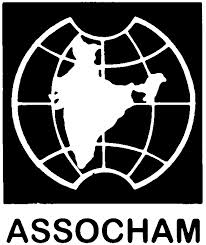 Ban iron ore export from NMDC to boost domestic iron & steel production: ASSOCHAM plea to FinMin
Ban iron ore export from NMDC to boost domestic iron & steel production: ASSOCHAM plea to FinMin
Apex industry body ASSOCHAM has apprehended that sudden Supreme Court order for temporary closure of about 26 mainstream mines in Odisha, which has created severe crisis for domestic iron and steel industry may result in significant fall in capacity utilization due to severe paucity of key raw material like iron ore and would lead to rise in finished steel imports in the country.
“There is a need to temporarily ban iron ore exports from the National Mineral Development Corporation (NMDC) despite commitments made to customers in the international market which can be fulfilled by procuring iron ore from Australia or Brazil, thereby fulfilling its export obligations, besides it will also improve NMDC’s export sales realization which is far lower than domestic sales realization,” said The Associated Chambers of Commerce and Industry of India (ASSOCHAM) in a communication addressed to Finance Secretary, Dr Arvind Mayaram.
NMDC being largest iron ore producer in India has production capacity of 32 million tons per annum and sells over 90 per cent of its produce in the domestic market apart from exporting to Japan and Korea under long-term supply agreements.
During the course of past two years, NMDC’s iron ore production was over 27 MT in 2012-13 and 30 MT in 2013-14, while it had exported about 1.6 MT and 2.5 MT in 2012-13 and 2013-14 respectively.
As per an ASSOCHAM estimate, steel production in India is likely to remain about 86 MT in the current financial year (FY) 2014-15 with India facing about 40 MT iron ore shortage to produce this much of steel and if NMDC does not stop exporting iron ore it may lead to an additional iron ore shortage of about 2.5-3 MT thereby reducing the steel production by about two MT.
In its letter to the Finance Secretary, ASSOCHAM has also suggested that the new government should reduce import duty on iron ore (lumps, fines and pellets) to zero from the current levy of 2.5 per cent in order to safeguard the cost-competitiveness of the domestic industry.
“The recent Supreme Court order to ban illegal mining in Odisha (which accounts for over half of India’s total iron ore production), may result in domestic iron ore production falling to 100 MT in the current FY 2014-15 thereby jeopardizing job safety of about 1.25 lakh people directly and indirectly engaged in iron ore production in the country which had notably declined to 136 MT in 2013-14 from peak production level of about 218 MT in 2009-10,” said Mr D.S. Rawat, secretary general of ASSOCHAM sharing his concerns.
“This will not only impact the domestic iron and steel industry alone but will have a cascading effect on other sectors of the economy depending on steel,” said Mr Rawat. “It is high-time that effect steps are taken to ensure smooth iron ore supply to India’s iron and steel industry.”
Severe shortage of iron ore in India has also forced the sponge iron units and integrated steel producers to reduce their capacity utilization which came down to about 81 per cent in 2012-13 from about 88 per cent in 2010-11, further highlighted the ASSOCHAM letter to the top FinMin official.
